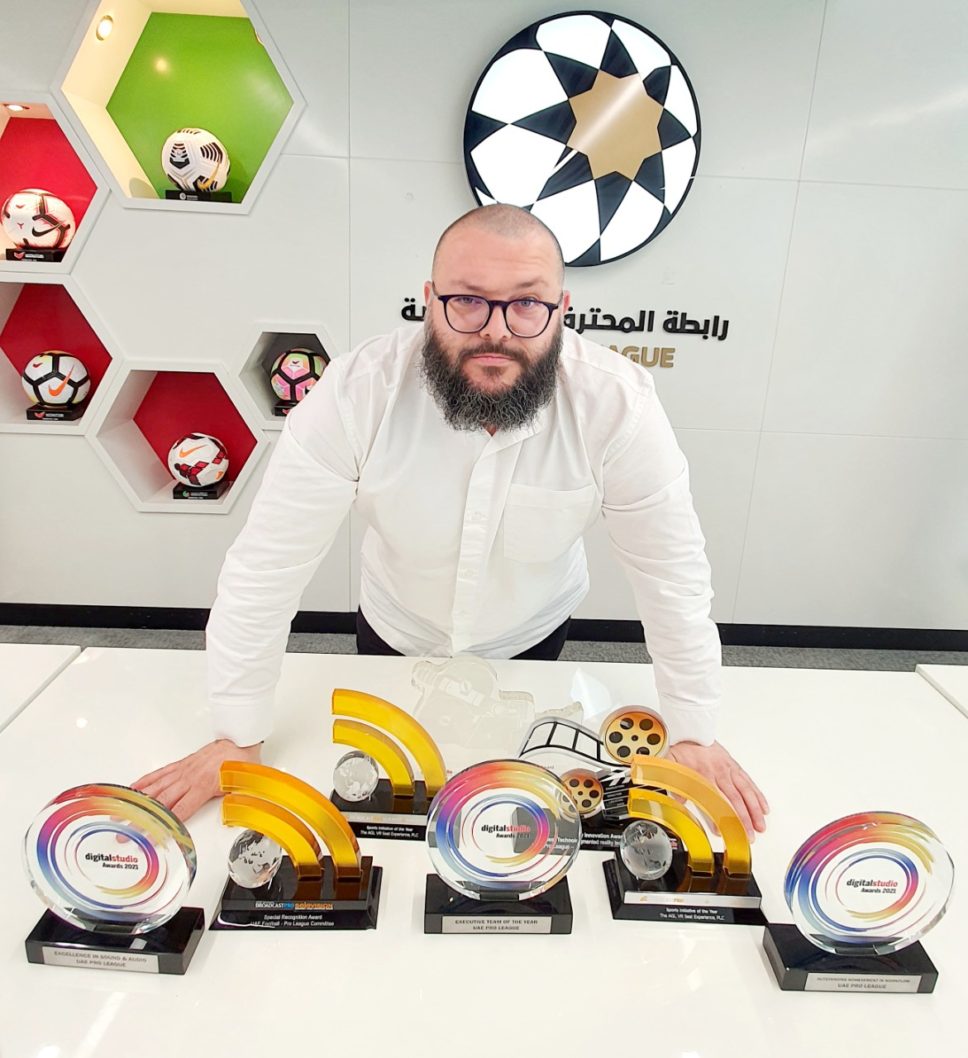An interview with Ammar Hina, Broadcasting & TV Productons Sr. Director at
– Where were you born and who are your parents?
I was born in Jordan and I started my career in Jordan as well. I was born in a TV family. My father used to be one of the masters as a Cameraman and a Director here in the Middle East. My uncle was a great Studio Vision Mixer Operator. My eldest brother as well as my idol and a great TV Post production master and one of the best -even till now- production team leaders with a similar career path. So, as you can see, I was born and raised between the video frames, it is my heritage. My Father, uncle, and brother worked more in studios, drama, and film, I knew that area, but I decided to leave that area and head to sports production.
– Were you born in Amman?
Yes. I was born in Amman, Jordan, specifically, the old side of the city.
– While growing up, did you like school?
To be honest, not really. At least not then. Maybe now I feel that I liked it more as I keep remembering my old friends and teachers, as a student I was not a great one. I had average grades all the time. I liked some of the subjects I learned at school but not all. I think school in general, changed me a lot. Though back then, it was more like a burden – it wasn’t easy. I think I had a tough childhood.
– Where did you school?
ISC- Islamic Educational College was my school. It is indeed one of the best schools. And even though I was not earning great grades, all of my family attended that school. Eventually, I graduated and I was looking forward to going to the University. I wanted to study media TV which had been my goal since day one. My major was in Journalism and Communication where I studied TV from an academic angle. I learned only the basics but unfortunately, I didn’t like the journalism side of the major. I always preferred being in the studio and having the camera, monitors, and cables next to me. I excelled in the university, finishing in less than 3 years.
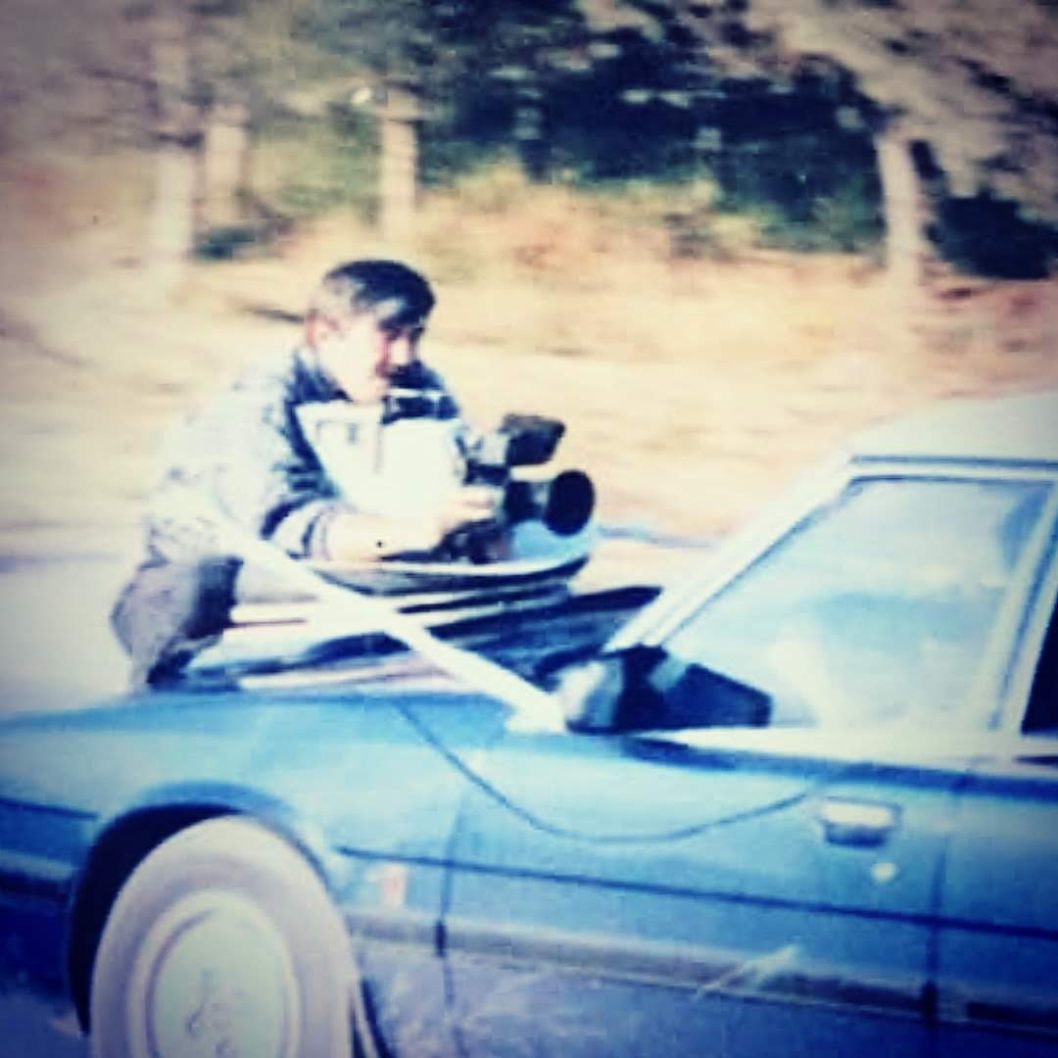
– What’s the name of the University?
University of Petra.
– Was it also located in Amman?
Yes, it is in Amman. I miss my university days. During that time, I was always so busy. I started my TV journey in the Jordan media city as a trainee. University time passed like a blink because I was so busy with building my TV career so my university memories are so few.
– Why 3 years and not 4?
Because I was a bit of a nerd and in a hurry as well. I was doing very well and to be honest, I wanted to finish and go work on TV. Now that I look back, I feel I was in a hurry.
– What was your first job after the university?
I started as a TV Assistant Producer in Jordan Media City inside one of the biggest TV stations at that time -ART (Arab Radio and Television). But before then, I had already started freelancing at some events doing media coverage. But at my career level, my first job was the position of Assistant Producer and then gradually, I became Producer. I was promoted to the office of Senior Producer then after that, the whole ART had been restructured somehow so I moved to an English company called Endemol Sports.
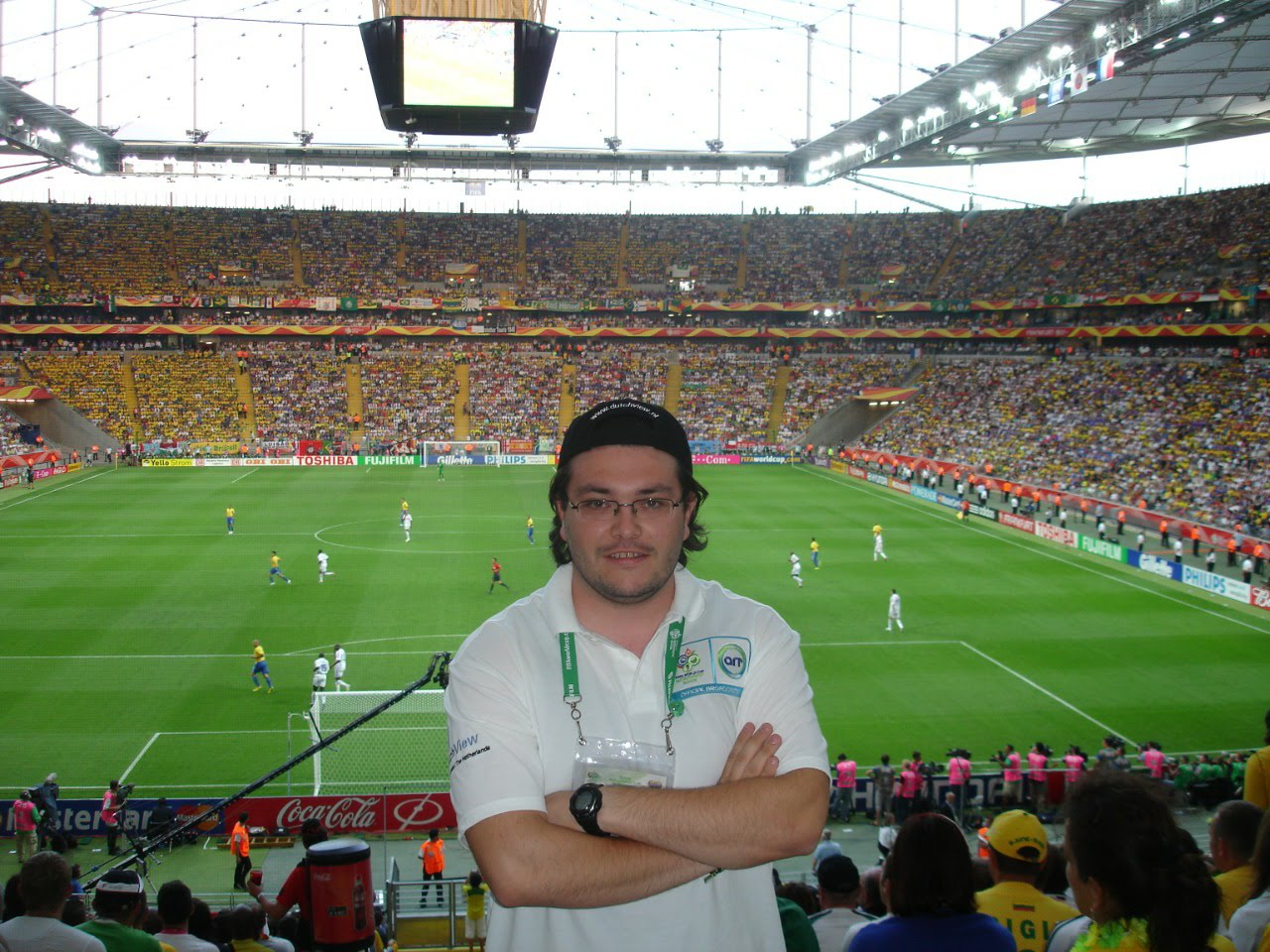
– If I may ask, was Endemol Sports also in Jordan?
No, Endemol is an international company, but the projects I did with them were in Abu Dhabi, UAE. So, I worked with Endemol Premier League on projects covered by Abu Dhabi Sports Channels, Now I can say that these projects were some of the best projects I have ever done. I worked as a Senior Producer and I had a couple of live shows which lasted for about 10 hours every day. I had a great team, to be honest, indeed that was one of the best chapters of my career.
– Was your team international?
Yes, it was a multi-national team. I had people from all around the world as part of the team. I have always worked with international teams in ART, we did many FIFA events such as world cup 2006, the Champions League in studios and on field around Europe, and a lot more events around the world.
– I can see you have some signed sports memorabilia, did Ibrahimovic sign those?
Yes, I have a lot of sports memorabilia signed by Ibrahimovic, Messi, Maradona, Tyson, Hamilton, Niki Lauda, and more. I have signed memorabilia from all over the world.
– What happened next, careerwise?
After the Endemol project ended in Abu Dhabi, I joined Abu Dhabi Sports Channel. I was selected for the position of Executive Producer for the international content.
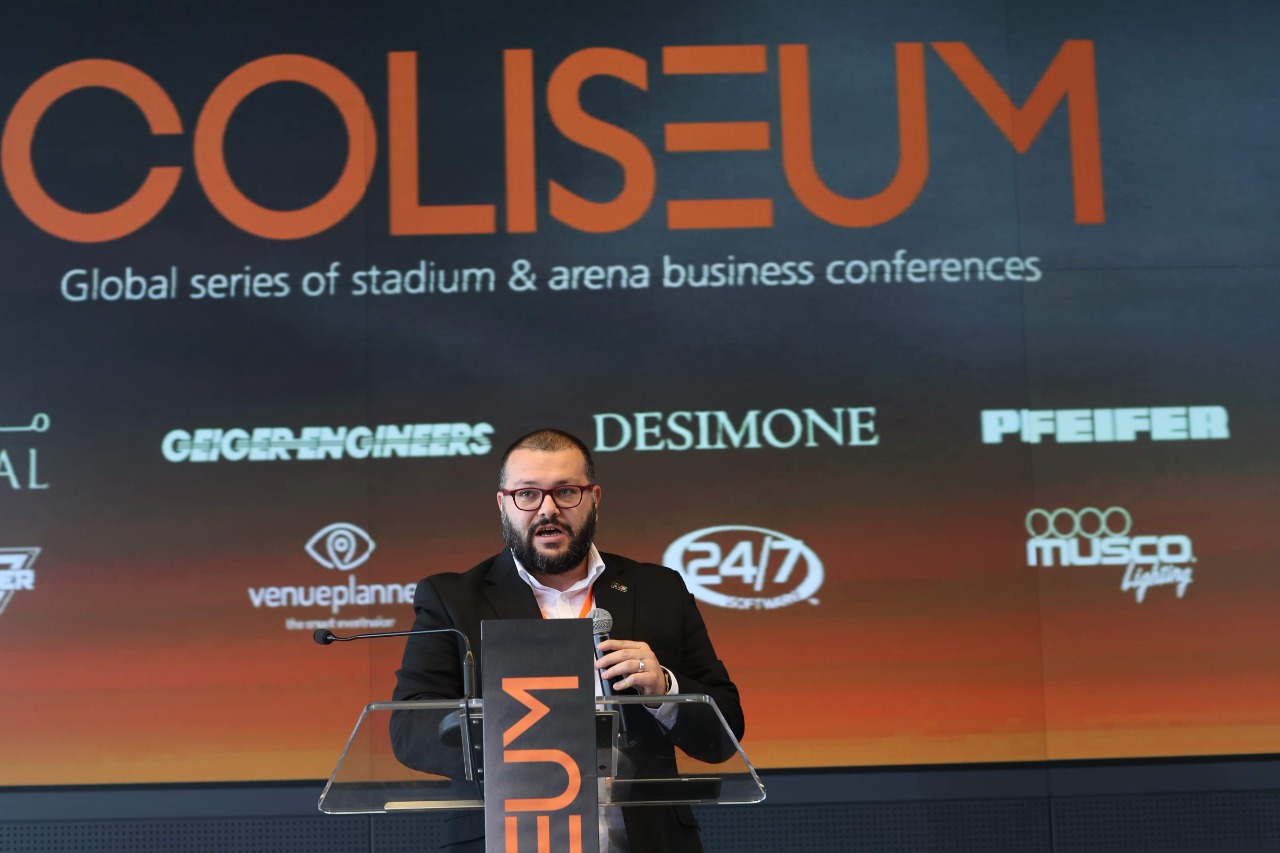
– Was the international content delivered in other languages?
It was covered in Arabic. However, the source of the content was international. We had the UEFA Qualifiers, MLS, and a couple of leagues from Europe, Formula 1, and Tennis tours worldwide. To be honest, local football league coverage was a little challenging for me at the beginning. After about a year, I got an offer from the local league here which is the Emirate Football League. Frankly, I found it challenging because I used to work on the other side of the content. I used to receive the content, work around it, and made it different. But when I moved over to the league, it was a bit more challenging because now I am in a position of doing the materials for the rights holders.
– What was your official position in the league?
At the league, I was hired as Senior Broadcast Services Manager which mostly involved working with the league output.
– What year did you move to the league?
In 2015, I started with the league and the whole idea that they had was a vision of establishing a broadcast department to serve the competitions and the rights holders. So instead of relying on the broadcasters to do the production, the Pro league decided to do everything in-house. Luckily, I was on the frontline of that project. I was responsible for the output. So, it took not less than a year only to change the regulations and to study the stadiums, list them down, and understand the broadcaster’s needs. It was not that easy and as I said, it was one of the biggest challenges I had ever faced. I used to be in the broadcasters’ shoes before and now, I was responsible for the finished product.
From the beginning, till now, it’s been a challenging job, but due to the presence of a clear management vision for the future, it somehow became clearer and better. The idea is to get the maximum exposure and improve the content of the league, we needed to make the product using top quality standards then raise it to an international level.
The first year, I was involved mostly in the regulations, studying and understanding the target audience and also the broadcasters and their needs. At that time, we decided to start the production by ourselves.
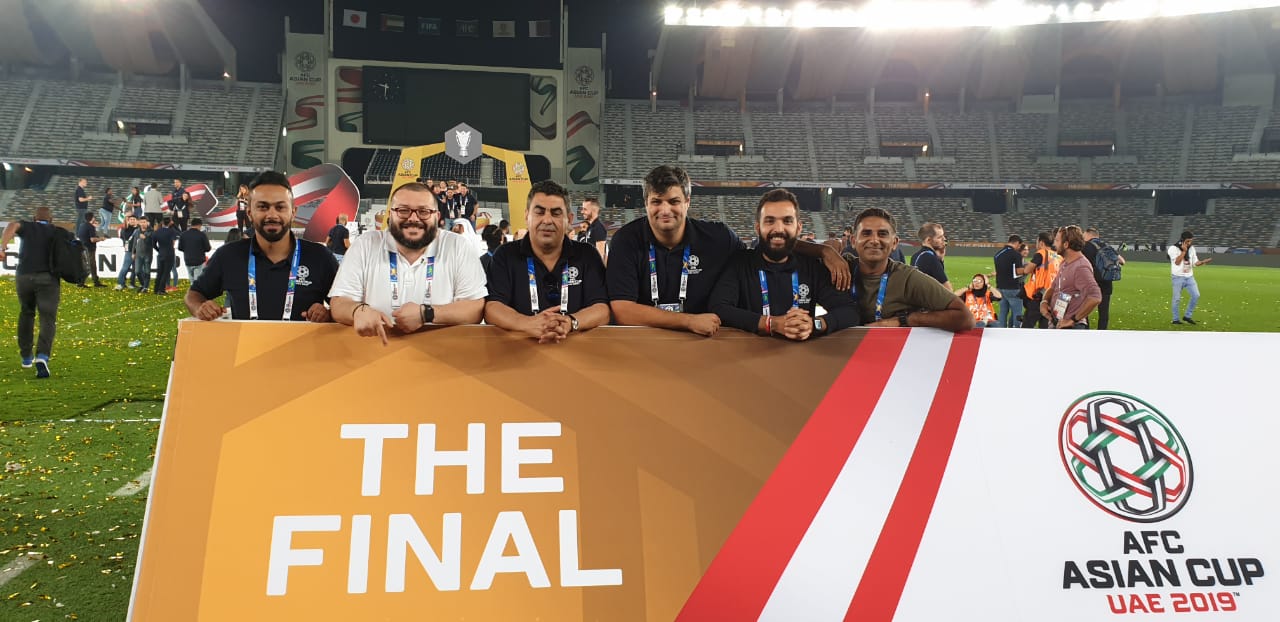
– If I understand correctly, the league was trying to start production by themselves?
Yes, we are doing the production for our matches. Only a few football leagues around the world are responsible for doing the production of the on-air output.
– Who was to be held responsible if the idea did not pan out because clearly, that idea is difficult to manage?
Yes, it was very difficult. And even till now, this is the 1st of its kind in Asia and the Arab world. It was borne after many meetings between the management and the stakeholders. It was not an easy decision to take the production fully on our shoulders and to keep the broadcasters away from the product. We are hiring production companies and we are dealing with them which means, we are 100% responsible. We have created broadcast and production guidelines, graphics, the director’s manuals, and all that is needed to guide the team in doing production according to our standards. So, whatever that was on-air was part of one general guideline. And honestly, I can say that I learned a lot from UEFA champions league production because I used to work closely with their products and I understood how they developed their content and the same goes for FIFA, EPL, and the high-profile competitions I worked with and around. And I believe that was the key success of what we have right now is in our ability to control and create the content the way we want it. It is purely our output. Currently, we are responsible for the production of over 250 matches per season.
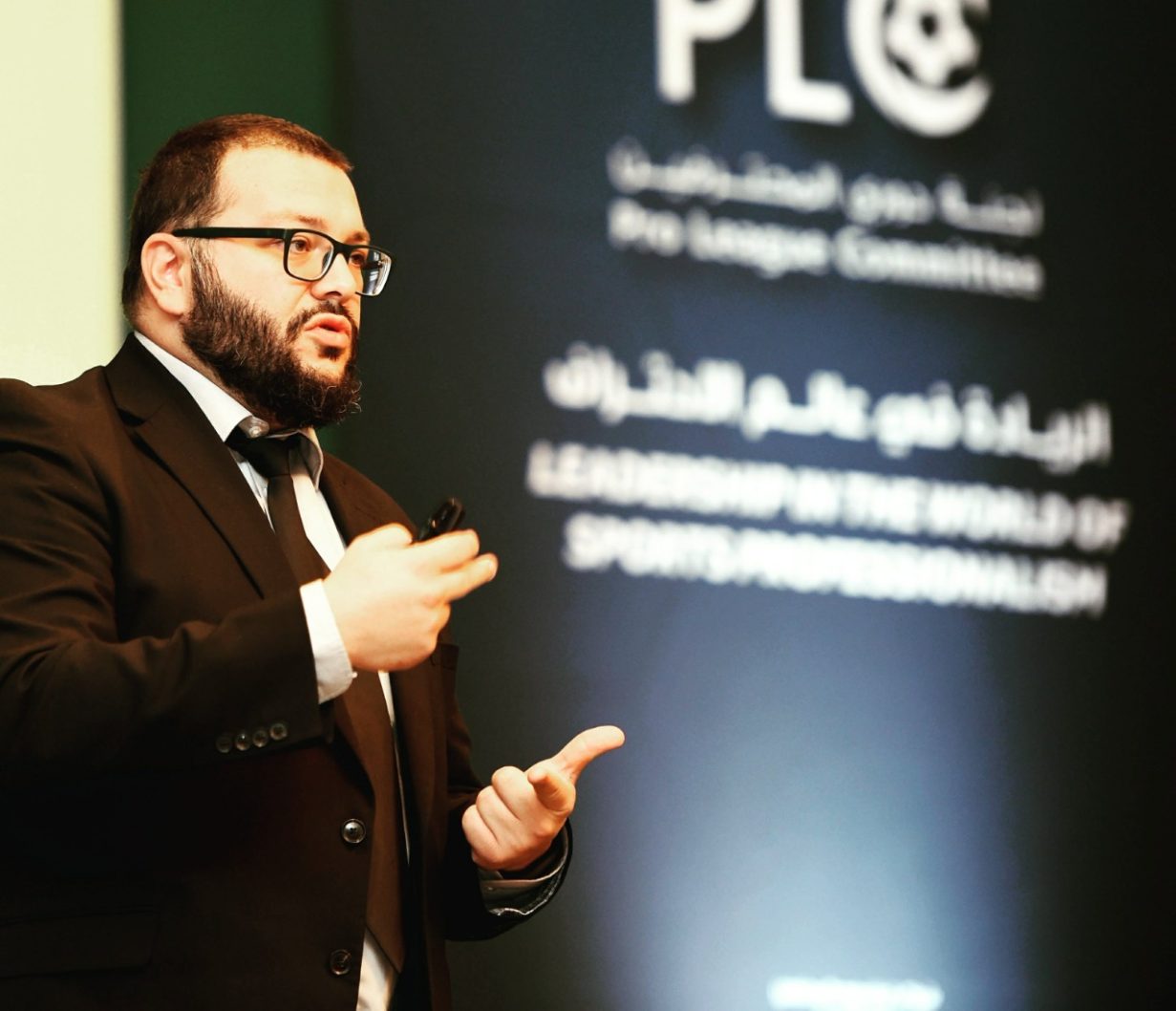
– That’s quite a lot. And how many cities do you cover?
Our productions go around 7 Emirates, over 14 clubs/ 14 stadiums. By taking the production upon our shoulders, we found that we have to produce more content to serve the rights holders so we can maximize the exposure. We are producing bilingual output, Arabic and English. And by doing that, we reached a point that we raised the viewership and sponsorship. From the viewership level alone, the increment was around 600% in 5 football seasons. So, it was a huge jump. Regarding the level of exposure, instead of selling the rights to only the MENA region, currently, we are being viewed all over the world. And I believe as you are in Russia, you can stream any of our matches through our rights holder’s platform in Europe. So, all over the world, you can watch all our outputs especially the digital ones. The whole idea is that we are trying to make an impact in this digital age and this has been the goal from the start. So even though when we started, we were broadcasting everything linearly, we’ve continuously worked on improving the digital output. Because that is the future of broadcasting. So, like I said it’s a huge jump from where we were.
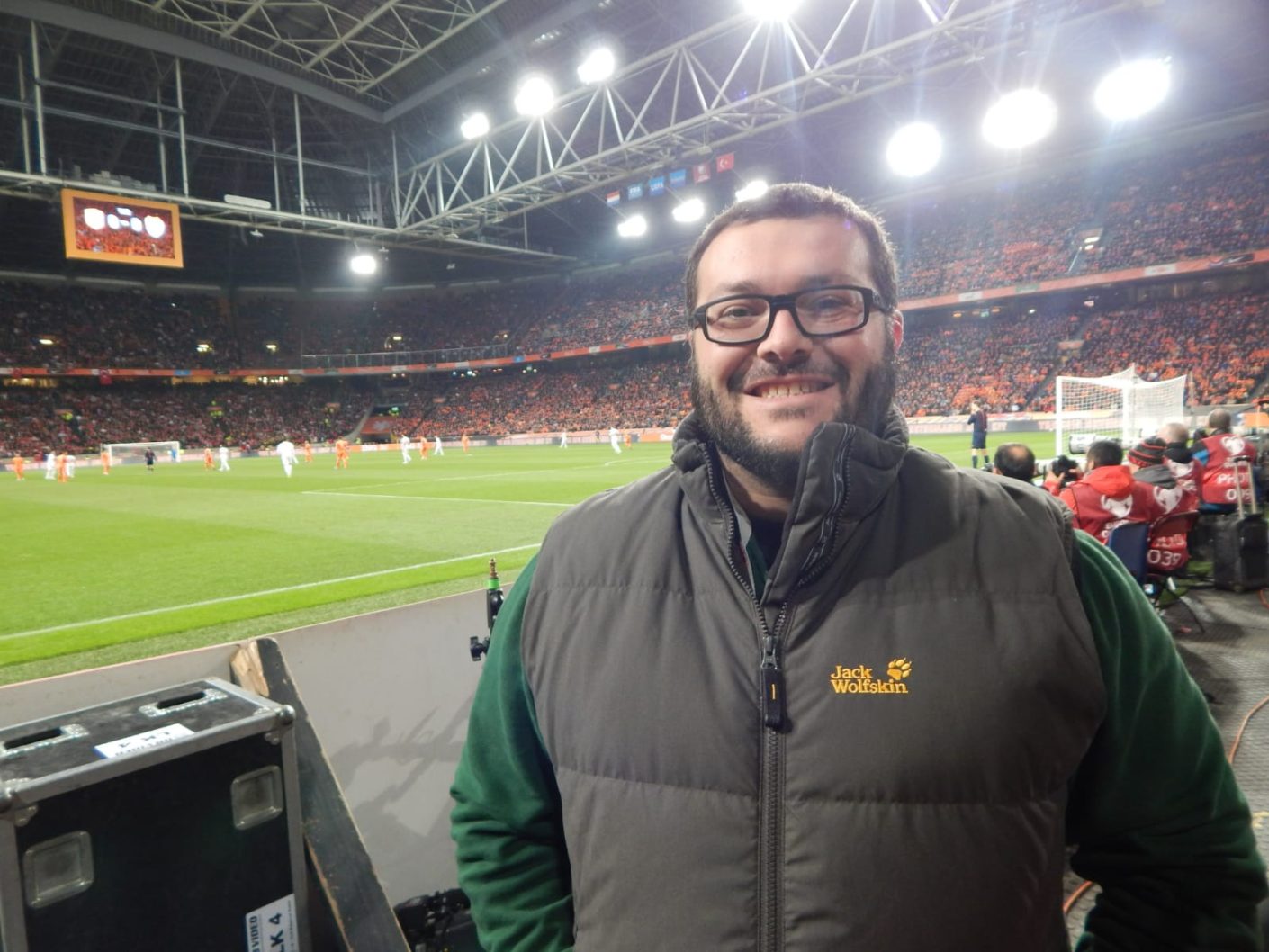
It’s not huge, I believe it’s super huge.
Exactly. Truly, I am so proud of being a part of the idea because when I see the numbers before and now, there’s a huge difference. From the digital streaming aspect 6 years ago, we had zero viewers and currently, we have reached over 140 million viewers from around the world which is a dream come true for a local league. With those numbers, you can say we have reached another level of futuristic thinking. We had a lot of challenges at the beginning, so, when we decided to change the whole product, we needed to consider the viewers for sure. We also had infrastructural challenges such as the stadiums, the cities. The movement from one stadium to another was not very smooth.
– How long did it take to build the infrastructure from the idea to the first broadcast?
About a season and a half which is one year and two months. Just to clarify, the stadiums were there already, what we built was the broadcast infrastructure within the stadium. For example, Hazza Bin Zayed/ Al Ain stadium was one of the best stadiums in the world back then and at the same time, we still have stadiums with a lower level of infrastructure. Even in Russia, when you go to Spartak Moscow, it’s not the same as Spartak Nalchik. By the way, I’m a Spartak Nalchik fan.
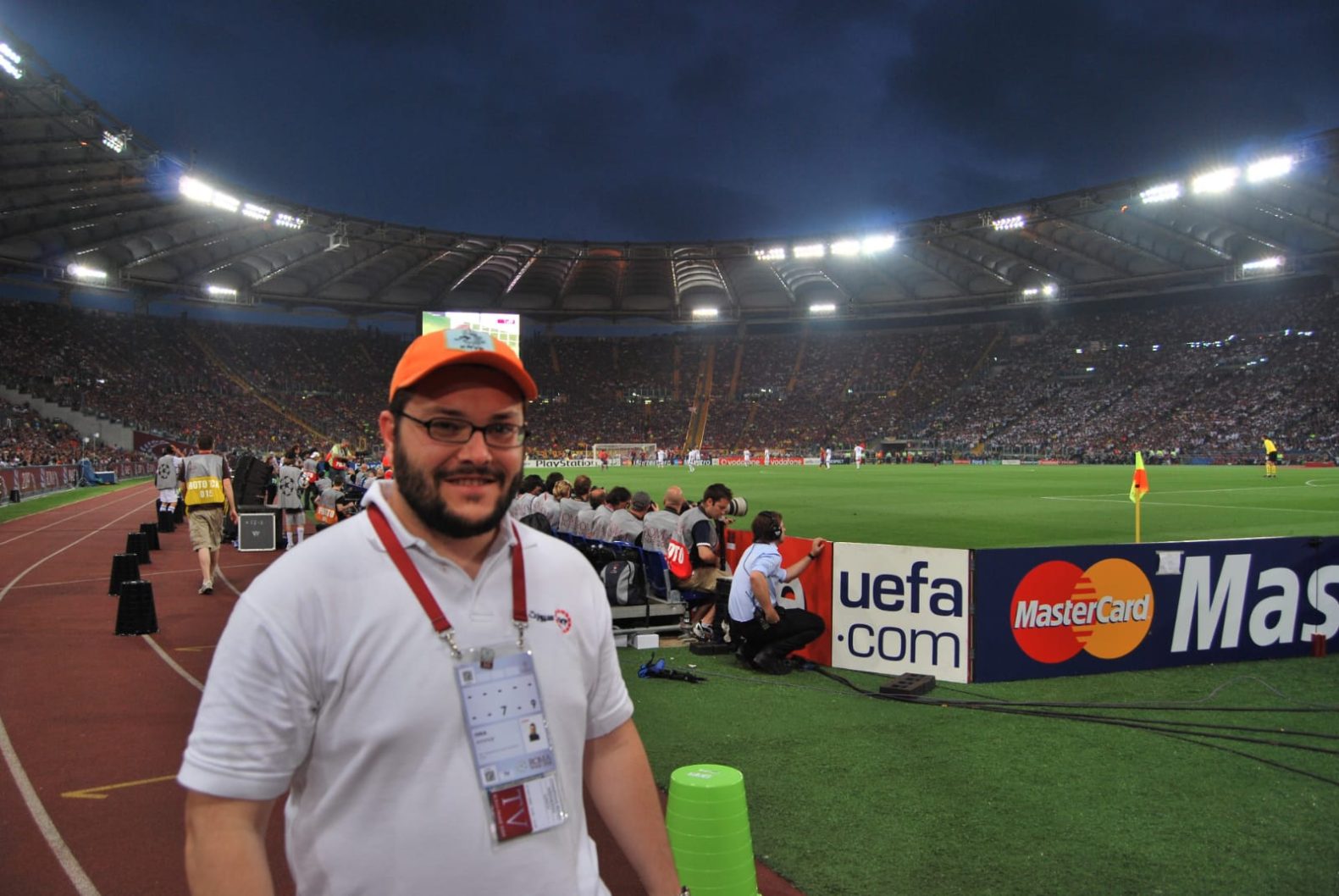
– But Spartak Nalchik is not popular in Russia?
I am originally from that part of the world, I am from a small village south of Nalchik, even now, I live in Abkhazia. Originally, I’m from Nalchik. I’m Circassian.
– That’s interesting. Welcome home.
Thank you so much.
– When you started, you found people and implemented ideas, were you in control of everything when you did this project?
Currently, I’m still with the league and it is not a small project. The project is part of the 10 years strategy and part of that strategy is broadcasting. We are always trying to convince the stakeholders about the advantages of having new technology all the time. It’s still challenging but when you look back at the achievement of the last few years, it’s quite encouraging.
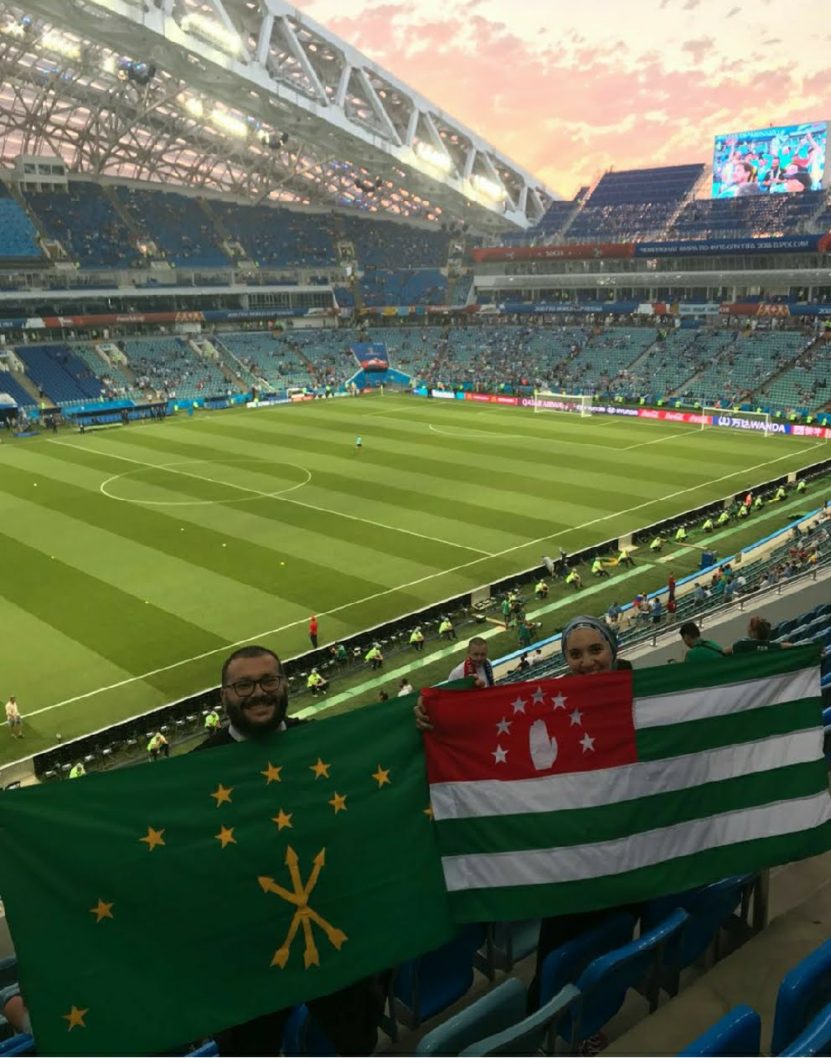
– I understand that part of your achievement is remote production?
We don’t have it yet but there is a plan in place to start in a couple of years. In my own opinion as a football fan, I don’t think it would be a fun experience. Because having the director working in the field is priceless. On the other hand, remote production might be easier and more feasible when comparing it to what we have now, and more efficient for sure to have one crew doing two to three matches back-to-back. But again personally, I don’t think it’s something I might enjoy but it’s one of the ideas we are discussing right now. Concerning the remote production, we are also having discussions with the Football Association for the Football Assistant Referee Video (VAR) to be fully remote in a couple of years. While it may be easier for the association, this decision will not be easy for the whole broadcasting production.
– Do you use 20 cameras for a game?
We have one game every week where we use 18 cameras, but yes on the final matches, we use 20 cameras and more sometimes, but our minimum standard is 13 cameras.
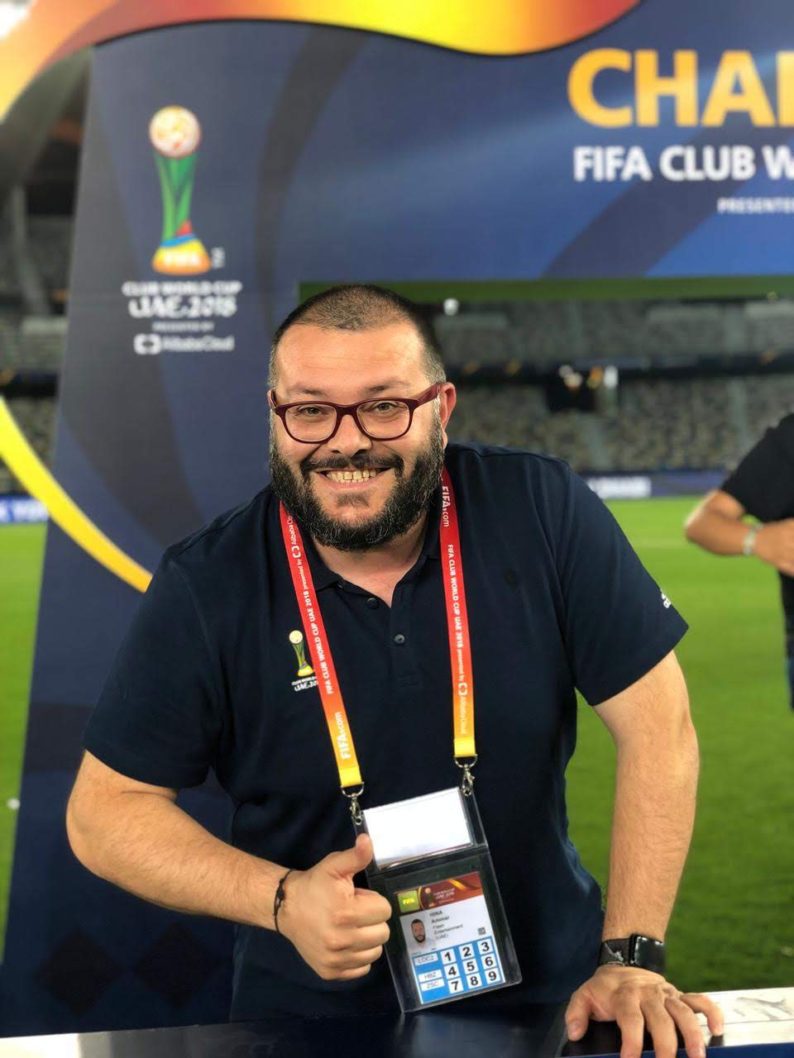
– Just like UEFA?
Yes, exactly. I’m not saying we are doing the same as UEFA but we have more challenges because we don’t have as many fans and with fewer fans, you need more reactions and stories coming from the pitch which would require more cameras.
– But now you have more fans, right?
Of course. I’m not saying we don’t have full stands all the time but the rate is improving. Like 5 years back we didn’t have as many numbers but unfortunately, with the COVID’19, everything has changed. So now even if there are fans, they need to maintain social distancing which is another challenging aspect.
And as I said we have 7 matches each week, we have one match with 18 cameras which includes sky-cam, and super slow motion and hyper motion cameras. And at the same time, we have a minimum of two matches with augmented reality elements, tracking data, 3D elements, and special graphics elements. We also have all the weekly 7 matches in Arabic and English. And every couple of weeks we shoot the Super Match when we have one of the biggest matches which require us to invest more technologically. So sometimes we shoot 360° and 180°.
It may come as interesting news to you that we did the first-ever worldwide football virtual reality telecasting in 2016 and a year ago three of the biggest leagues just had their first experience of it. This is one of the biggest accomplishments for us. The challenge we had then was the disbelieve in the idea and the rejection till they experienced it. It’s so strange even for me, just wear the goggles and enjoy it.
We have a good partnership with technology providers. As an example, we have very nice relations with a company named Sponix, they are into immersive replay technology, we have good cooperation with LIVE HD productions, Mediapro, Wtyision and a couple of other partners.
– Is the Emirates Football League popular?
It’s the number 1 sport in the UAE, especially for the local and the Arab communities.
– Which team do you support?
I support many teams, al Ahli in Jordan, Newcastle in England, Barcelona in Spain, Spartak Nalchik in Russia, Besiktas in Turkey, and for Germany, I like Borussia Mönchengladbach.
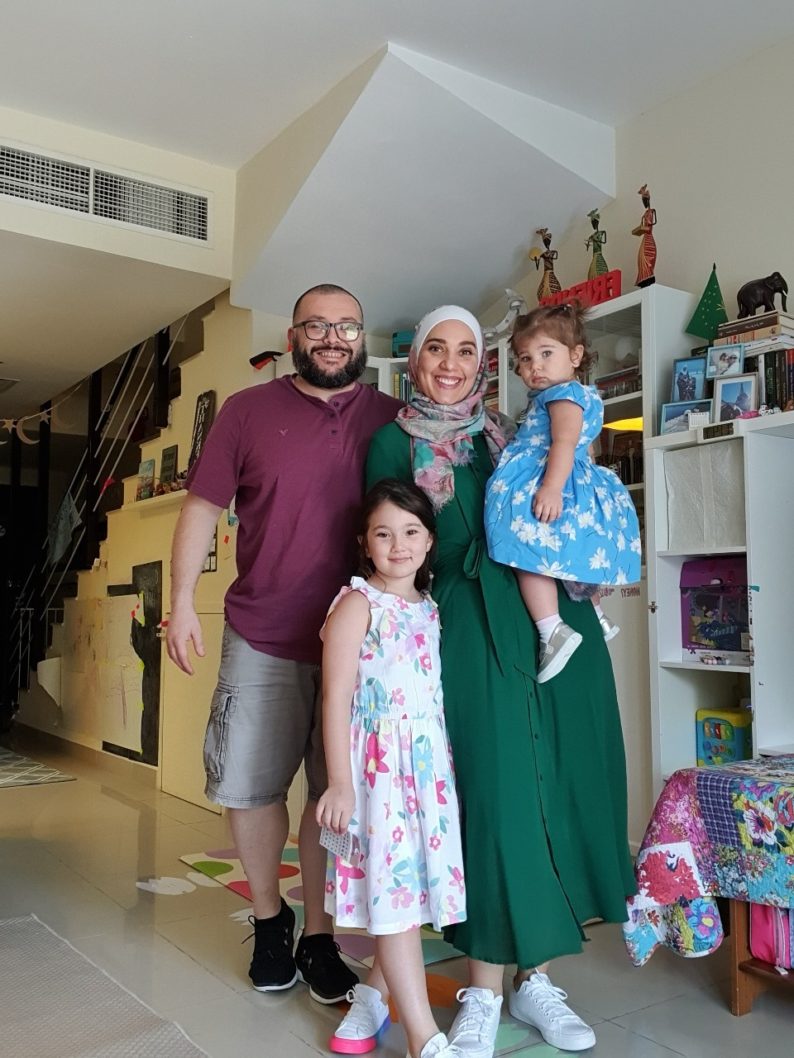
This video shows some of the technologies we use for our matches. As an example, showing the immersive replay. The video showing most of the technologies we use, AR, VR, special cameras, drones, 180˚ and 360˚ cameras.
One of the amazing things we did this year was filling the audio gap of having no fans or crowd present. So, we used the crowd audio cheering effects and the impact was so good. All the broadcasters and everyone, in general, were amazed.
– What is your main achievement?
My achievement is having enough time for my daughters while also having this demanding job.
– No, I meant what will you say is your biggest professional achievement?
I believe my biggest achievement is what I am doing right now. I am still on the journey and am sure the best is yet to come.
– To more personal questions, why can you speak a little Russia?
Because I’m moving there sooner or later. I have to eventually go back home, right?
– When did your family leave Russia?
Before the Soviet Union. We had more than 300 years of war so unfortunately, we had to leave. My grandfather was born in the Caucasus but my father was born in Jordan and I was born and raised there. I go back home once or twice a year. I’m trying to learn Russian but with my family there, we speak the Circassian language – Adyghe. My heart is split between Jordan and Caucasus. Between Jordan and Circassia. Even both my daughters got names from my homeland. My first daughter is named Seepsa which means “my soul” in my language and my second daughter is named Ritsa which is one of the myths we have. Like lake Ritsa in Abkhazia. By the way, my house in Sukhum -Abkhazia, I moved there about three years back. I go there every year but unfortunately with Covid, I couldn’t make it yet this year.
– When did you meet your wife?
I met her in 2006. I met her when she was at the university.
– Where?
In Amman, Jordan.
– Does she work on TV?
No. Luckily, she doesn’t. She’s Circassian too. I’ve known her for a long time now.
– What is her occupation?
She’s an industrial engineer and a fitness personal trainer.
– Is she currently working?
Not currently. She was working but she stopped to take care of the kids. But I believe this year or next year she will start again.
– Does she like Emirates?
Yes, because we are together.
– How many kids do you have?
I have two daughters. Seepsa and Ritsa.
– How old are they?
My first daughter is 7 years while my second daughter is almost 3 years.
– Are they both in school?
Yes, both of them. My younger daughter is in preschool.
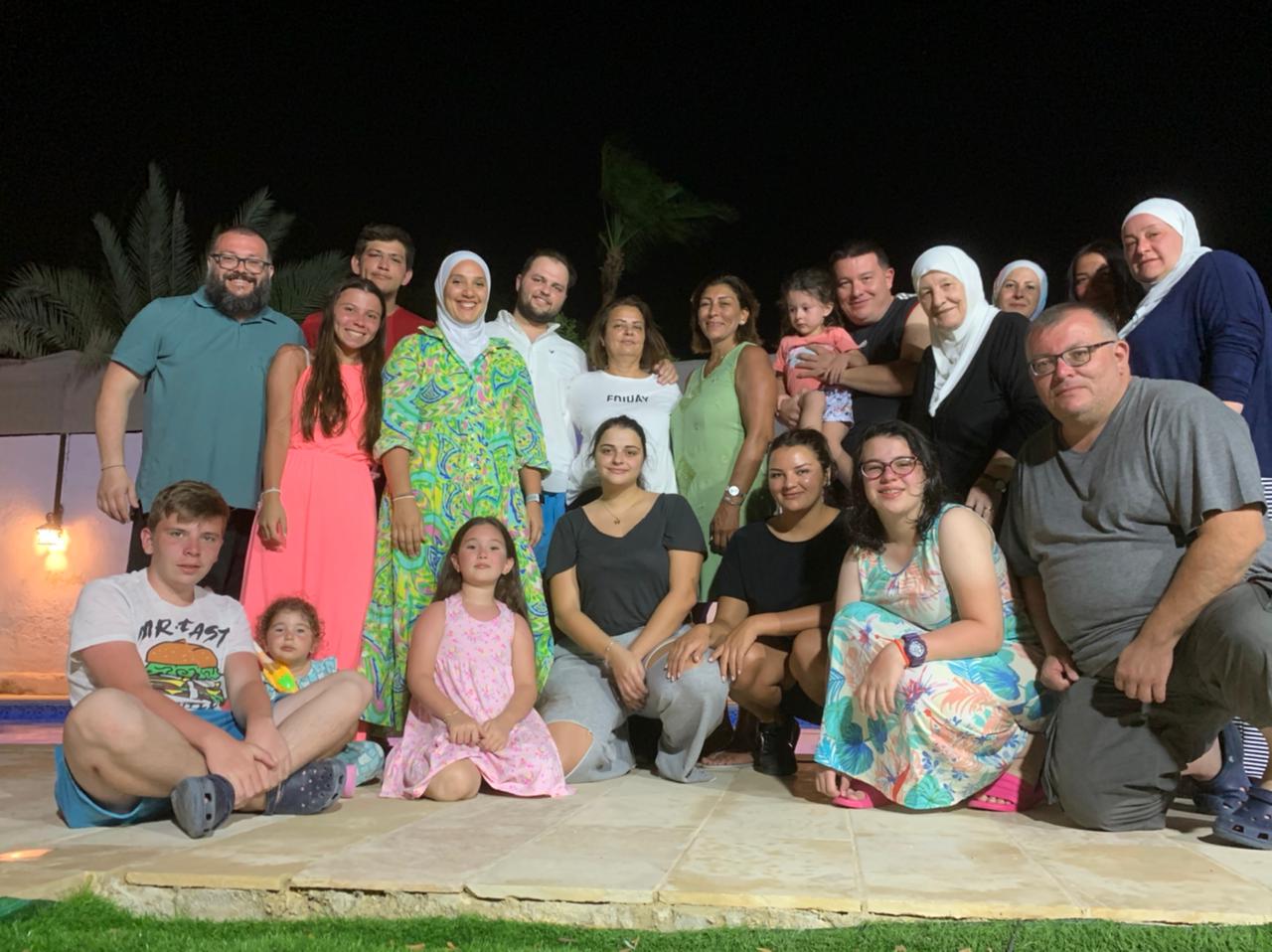
– Do you have any hobbies?
Yes. I have a lot of hobbies but one of my favourite hobbies is reading. I listen to audiobooks all the time. I also like traveling around the world. I enjoy it while working and also on a personal level.
Experience
Jul 2024 – Present – Broadcasting & TV Productons Sr. Director, Saudi Pro League (SPL)
Aug 2023 – Present – Director of Broadcast & Production Services, Saudi Pro League (SPL)
2022 – Sep 2023 – TV Production & Broadcast Consultant, Saudi Pro League (SPL)
Jan 2021 – Present – General Manager / Founder AMMARHINA Consulting FZE
Jan 2022 – Sep 2023 – Business Development Director, NEP Group, Inc.
Dec 2021 – Mar 2022 – LOC Broadcast Manager, FIFA Club Wolrd Cup 2021
Apr 2017 – Jan 2022 – Broadcast & TV Production Director, UAE Pro League
Jun 2015 – Mar 2017 – Senior Broadcast Services Manager, UAE Pro League
May 2018 – Feb 2019 – LOC Broadcast Manager, AFC Asian Cup 2019
Apr 2018 – Dec 2018 – LOC Broadcast Manager, FIFA Club World Cup 2018
Sep 2017 – Dec 2017 – LOC Broadcast Manager, FIFA Club World Cup 2017
Jan 2015 – Jun 2015 – Executive Producer – Responsible of the International Events Coverage, Abu Dhabi Media (ADM)
Oct 2013 – Jan 2015 – Broadcast Service Manager, Pro League Committee
Jan 2009 – Dec 2013 – CEO – Founder, Punto Media Services
Jul 2010 – Sep 2013 – Senior TV Producer / Endemol – English Premier League Channels
Jul 2010 – May 2012 – Sports TV Producer / Endemol – English Premier League Channels – Abu Dhabi TV
Nov 2002 to Jul 2010 – Producer / Director Freelancing Projects
Apr 2005 – Jan 2010 – Producer / Sports Channels, ART / Arab Radio & Television
2004- 2010 – Producer / Director, ART Sports Channels, Amman – Jordan.


